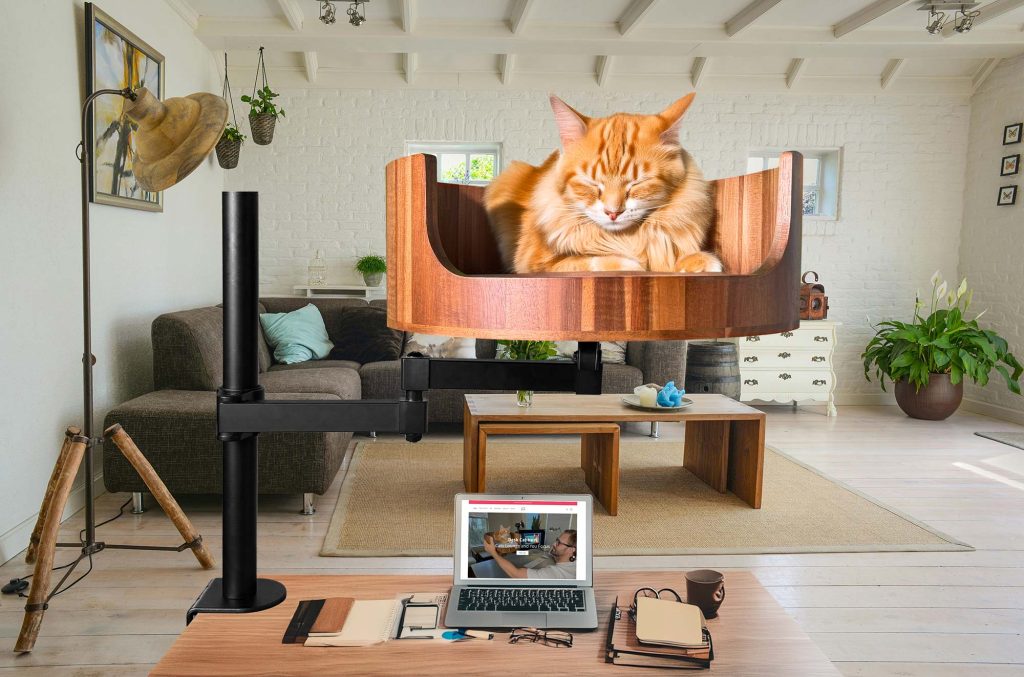Do you have a cat that snores like a truck driver? If so, you’re not alone! Many cat owners are amused and even puzzled by this cute and quirky behavior. In this article, we will explore the reasons why some cats snore, what causes it, and whether it’s something to be concerned about.
From the tiny Desk Cat Nest to the majestic Maine Coon, cats of all breeds and sizes can exhibit snoring behavior. While it may seem adorable to hear your furry friend snoring away, it’s important to understand the underlying reasons behind it. Snoring in cats can be caused by a variety of factors, including obesity, allergies, respiratory issues, or simply the position they sleep in. By delving into the reasons behind your cat’s snoring, you can ensure that they are comfortable and healthy as they catch their z’s. So, let’s dive into the world of cats that snore and unravel the mysteries behind this endearing yet amusing behavior.
1. Snoring in cats is a common and harmless behavior, often caused by their anatomy or underlying health issues.
2. Breeds with flatter faces, such as Persians and Himalayans, are more prone to snoring due to their nasal structure.
3. Overweight cats are also more likely to snore, as excess weight can put pressure on their airways.
4. Regular vet check-ups are important to monitor any potential health issues that may contribute to snoring.
5. Understanding and accepting a cat’s snoring as part of their individual quirks can help strengthen the bond between pet and owner.
What Causes Cats to Snore?
Cats snoring can be caused by various factors, including obesity, brachycephalic breeds, respiratory issues, allergies, and dental problems. Obesity can lead to excess fatty tissue in the throat, obstructing airways and causing snoring. Brachycephalic breeds, such as Persians and Himalayans, have flat faces and compressed nasal passages, making it harder for them to breathe and resulting in snoring. Respiratory issues like infections or nasal blockages can also contribute to snoring in cats. Allergies to dust, pollen, or certain foods can cause inflammation in the airways, leading to snoring. Lastly, dental problems, such as tooth decay or gum disease, may cause cats to breathe through their mouths and snore.
When to Be Concerned About Your Snoring Cat
While occasional snoring in cats is usually harmless, persistent and loud snoring could be a sign of an underlying health issue that requires veterinary attention. If your cat’s snoring is accompanied by other symptoms like coughing, wheezing, labored breathing, or excessive drooling, it could indicate a more serious problem, such as respiratory infection, asthma, or a blocked airway. Older cats or those with preexisting health conditions may be more prone to snoring due to age-related changes or complications. If you notice changes in your cat’s snoring patterns or behaviors, it is best to consult a veterinarian for proper diagnosis and treatment.
Managing Snoring in Cats
To help reduce or alleviate snoring in cats, there are several strategies you can try at home. Maintaining a healthy weight through proper diet and regular exercise can prevent obesity-related snoring. Using humidifiers or air purifiers in your home can help reduce allergens and improve air quality for cats with allergies. Keeping your cat’s dental health in check by brushing their teeth regularly and scheduling dental cleanings can prevent oral issues that may lead to snoring. If your cat belongs to a brachycephalic breed, providing proper grooming and keeping their environment free of irritants can help with their breathing and reduce snoring. However, it is essential to consult your veterinarian before making any significant changes to your cat’s routine to ensure their well-being.
Desk Cat Nest FAQ
Can the Desk Cat Nest help with cats that snore?
Yes, the Desk Cat Nest is designed to provide a comfortable and cozy resting spot for your cat, which may help alleviate snoring symptoms. Cats may snore for various reasons, and providing a comfortable sleeping area can often reduce snoring in cats.
How should I introduce my cat to the Desk Cat Nest?
It’s best to introduce the Desk Cat Nest gradually to your cat. Place their favorite blanket or toy inside the nest to make it inviting, and encourage them to explore and use it at their own pace. Positive reinforcement and treats can also help make the introduction easier.
Is the Desk Cat Nest easy to clean?
Yes, the Desk Cat Nest is made with removable and washable materials, making it easy to clean and maintain. Simply remove the cushion and wash it according to the care instructions provided to keep the nest fresh and clean for your cat.
Will the Desk Cat Nest fit on any desk?
The Desk Cat Nest is designed to fit on most desks, but it’s important to check the dimensions and measurements of your desk before purchasing to ensure a proper fit. The nest is compact and space-saving, making it suitable for smaller desks as well.
Can the Desk Cat Nest be used for cats of all sizes?
The Desk Cat Nest is suitable for cats of various sizes, but it’s best suited for small to medium-sized cats. Larger cats may find the nest too snug, so it’s important to consider your cat’s size and weight before purchasing the Desk Cat Nest.
In conclusion, choosing a Desk Cat Bed is a valuable choice for cats that snore. The elevated design of the bed helps to alleviate any potential obstruction of the airway, reducing the likelihood of snoring. Additionally, the comfortable and cozy space of the bed provides a peaceful sleeping environment for your feline friend, promoting better sleep quality and reducing snoring episodes. Investing in a Desk Cat Bed is a great way to improve your cat’s overall health and well-being, ensuring a restful night’s sleep for both you and your beloved pet.


